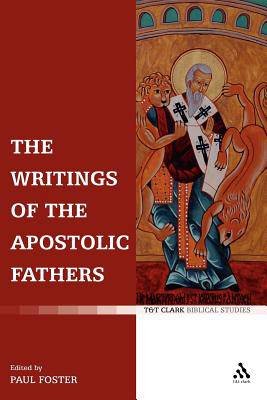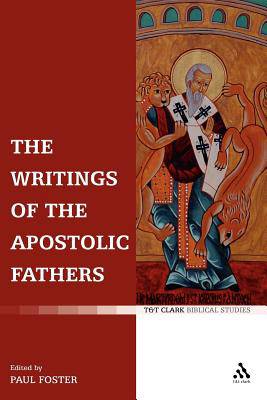
Bedankt voor het vertrouwen het afgelopen jaar! Om jou te bedanken bieden we GRATIS verzending (in België) aan op alles gedurende de hele maand januari.
- Afhalen na 1 uur in een winkel met voorraad
- In januari gratis thuislevering in België
- Ruim aanbod met 7 miljoen producten
Bedankt voor het vertrouwen het afgelopen jaar! Om jou te bedanken bieden we GRATIS verzending (in België) aan op alles gedurende de hele maand januari.
- Afhalen na 1 uur in een winkel met voorraad
- In januari gratis thuislevering in België
- Ruim aanbod met 7 miljoen producten
Zoeken
Omschrijving
The Writings of the Apostolic Fathers refer to a group of miscellaneous Christian writings produced in the first and second centuries. The authors of these writings were considered by seventeenth century scholars to be the next generation of Apostles and as a result were named The Apostolic Fathers. Perceived by many scholars to be the most important collection of post-New Testament writings, a number of these texts were in fact considered for the Canon of the New Testament but later rejected. Their obvious significance stems from the fact that they are the first Christian writings produced outside the New Testament Canon and as such contain an essential insight into the development of the early Christian Church and Christian thinking. Much Christian Doctrine came, not from the New Testament, but from the writings produced by the early church and in particular the writings of the Apostolic Fathers. Therefore, these texts are crucial to an understanding of the shaping of Christian thought and Christian doctrine. This volume will provide readers with an overview of each of the eleven texts, together with a general introduction. Communicating the best recent scholarship to a broad audience, each chapter offers a treatment of the most controversial aspects of each text and discusses the theology of each of the writings in order to orient readers to the development of Christian thinking in the second century. Each article ends with a carefully chosen select bibliography to enable further reading.
Specificaties
Betrokkenen
- Auteur(s):
- Uitgeverij:
Inhoud
- Aantal bladzijden:
- 178
- Taal:
- Engels
Eigenschappen
- Productcode (EAN):
- 9780567031068
- Verschijningsdatum:
- 1/03/2007
- Uitvoering:
- Paperback
- Formaat:
- Trade paperback (VS)
- Afmetingen:
- 180 mm x 233 mm
- Gewicht:
- 290 g

Alleen bij Standaard Boekhandel
+ 145 punten op je klantenkaart van Standaard Boekhandel
Beoordelingen
We publiceren alleen reviews die voldoen aan de voorwaarden voor reviews. Bekijk onze voorwaarden voor reviews.









